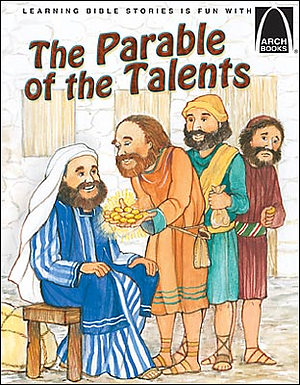Fr. Tom, a newly ordained priest, came out of his room a bit disappointed after having received a call from his Provincial. Immediately Fr. Stephen a close friend of Fr. Tom asked him: “Where is he sending you?” “To that God-forsaken place! I knew he would send me there. He knows my caliber and intellectual capacity and yet he wants to send me there,” said Fr. Tom. Fr. Stephen immediately whispered in his ear saying: ‘Hey! you are an asset to the Church and our congregation, just tell him a simple ‘no’, let him find somebody else.
God does not speak to us directly. He speaks to us through several people like our parents, teachers, religious superiors etc. and even through several circumstances. There are times we tend to bend the will of God in order to make it palatable to us or at times force our will on God’s will. This is what St. Peter does in today’s gospel. He tries to teach God a lesson. When we try to be like God we become Satan. Let us remind ourselves of the fate of the most beautiful angel Lucifer. Thus Jesus rightly calls St. Peter the rock a ‘Satan’ who dared to be like God or even go one step higher than God Himself. Here Peter tries to redeem the Redeemer and save the Saviour.
Rita and James were deeply in love with each other. During one of their intimate conversation, Rita asked James, ‘What will you do if I die all a sudden?’ Even before she uttered the last syllable, she received a slap from James.
When we love someone very much, we tend to treasure the presence of that person. We do not want to lose them. This is a sign of love. I am sure in this circumstance, even the act of slapping was a manifestation of love. This is what St. Peter does to Jesus. He rebukes Him. Why should the Lord talk about death on the cross at this point of time? The one who has come to give life abundantly speaks about lifelessness. Was the act of Peter lacking in signs of love? He genuinely loved the Lord and he did not want to lose Him. Then why should he be rebuked? Our love should not be a mere expression of our impulses. Even our emotions have to be educated. Not all that we feel is okay, there is an ethics even for our feelings. Our love should not be a cause of hindrance in doing God’s work. Every mother who prevents her son/ daughter from joining a religious congregation in order to have him/her close to her is in a way act like the agent of evil. Our love should foster the will of God not the other way.
When we love God and try to do His will, we find meaning in our life. Last week, after giving a short talk on Our Lady to the Legion of Mary, I was talking to a mother about the devotion to Our lady. In the course of our conversation, she told me that she is willing to give up everything and just dedicate her life for the Lord. She is from a fairly well-off family with a son and daughter of marriageable age. Her husband works in a big company. God has blessed her with everything she needs. But still she felt, God is above everything. I told her jokingly, that she should have thought about it, before the marriage. The simple words of that mother struck me. She did not talk from her head. They were the words from her heart. At the end of everything, what counts is how much of wealth we have inherited in the Kingdom of God. People, who love God and do His will, will be ready to lose everything for the sake of God.
Last year when I was attending the funeral of my friend’s mother, something touched me very much. Just before burying the body, people noticed the small ring on her finger. People around there wanted to remove it. But they could not remove it. Many of them took turns and tried to remove it but the effort was in vain. Then someone suggested to cut off the finger in order to remove the ring. Some were for the suggestion and some did not agree. My friend told them to leave the ring in her finger. But the others did not listen and nearly after half an hour, they managed to pull out the ring. I was thinking, ‘even if we want to carry something after our death with us, our fellow human beings will not allow it. They will make sure that we go with empty hand.
Is it not right when the Lord tell us ‘What if you gain the whole world and lose the soul?
The simple way to save our soul and reach God is to love him sincerely and do God’s will even at the cost of our life.














